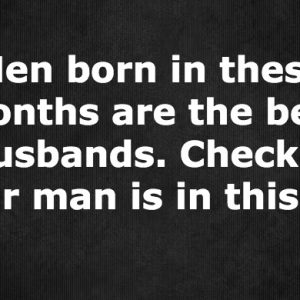Ghislaine Maxwell — the convicted co-conspirator of Jeffrey Epstein — sat for a two-day interview with the DOJ led by Deputy Attorney General Todd Blanche. In the subsequent public release of a heavily redacted transcript, she made several notable statements about Bill Clinton’s interactions (or lack thereof) with Epstein and Maxwell herself.
### What Maxwell said about Clinton
Some of the key claims made by Maxwell:
* She asserted that Bill Clinton **never visited** Epstein’s private island estate (commonly known as Little St. James). She said: *“He never, absolutely never went. And I can be sure of that because there’s no way he would have gone.”*
* She characterized her relationship with Clinton as a social one: *“President Clinton was my friend, not Epstein’s friend … I never saw that warmth with Mr. Epstein.”*
* She also said that the plane flights Clinton took on Epstein’s jet were arranged by her: “I was the one who suggested to Epstein that he make his plane available to Clinton for the trips … they met because of me, and the plane was because of me.”
* She claimed she had been “very central” to the startup of the Clinton Global Initiative and that Epstein attempted to use that philanthropic involvement to insert himself.
### Why this matters
These statements are significant for several reasons:
* Clinton’s association with Epstein has long been a subject of scrutiny, especially his many flights on Epstein’s aircraft in the early 2000s. Maxwell’s claims attempt to draw a distinction: that while Clinton and Epstein’s paths crossed, she says there was not an independent, personal friendship between Epstein and Clinton.
* By placing herself as the linchpin (“because of me … the plane was because of me”) in the connection between Clinton and Epstein, Maxwell shifts the narrative of direct Epstein-Clinton ties and suggests a more mediated relationship.
* Her claim that Clinton never visited Epstein’s island contradicts many rumors and allegations that have circulated. If taken at face value, this could counter certain speculative narratives linking key political figures more deeply to Epstein’s private activities.
* However, the fact that Maxwell did *not* provide evidence of wrongdoing or implicate Clinton in criminal acts means the statements do *not* amount to new allegations of illegal behavior by Clinton. In fact, the transcripts underscore she *didn’t* witness inappropriate behavior by him.
### Context & Caveats
* Maxwell’s interview was conducted under a **proffer agreement**, which means her statements cannot necessarily be used against her in a separate case (unless she lies).
* The transcript has been heavily redacted, and it reflects Maxwell’s recollection — which in parts she acknowledges is tentative (“I want to say … I think maybe twice, but I don’t remember”).
* Critics question her credibility given her conviction and prior findings of untruthful statements in court proceedings. The DOJ itself has said the interview uncovered *no client list* for Epstein and no credible evidence for additional uncharged parties.
* The revelations must be viewed in the larger context of the Epstein-Maxwell network, extensive flight logs, and civil claims — which show flights and travel but do not in themselves prove criminal contact in every case.
### Implications Going Forward
* **For public perception**: Maxwell’s account provides a set of assertions that may reduce speculation or conspiracy narratives around Clinton’s involvement with Epstein — at least as Maxwell frames it.
* **For investigations**: While Maxwell says she observed no illicit behavior by Clinton, her framing may prompt investigators to re-examine the nature of the links between Epstein, the Clinton Global Initiative, and Clinton’s philanthropic engagements.
* **For victims and survivors**: The release of the transcript stirred controversy among survivors who viewed Maxwell’s statements as self-serving and potentially dilutive of accountability. Some have criticized the DOJ for providing her a platform to recast events.
* **For legacy and reputations**: Clinton’s historical association with Epstein remains contested territory. Though these statements don’t close the door on questions, they complicate narratives by adding a version of events that emphasizes mediation through Maxwell rather than direct friendship with Epstein.
—
## Conclusion
Ghislaine Maxwell’s interview with the DOJ delivered a new layer of nuance — or ambiguity — to the complex web linking Jeffrey Epstein, Bill Clinton, and powerful networks of influence. Her claims that Clinton was a “friend of mine, not his [Epstein’s] friend,” that she orchestrated flights on Epstein’s plane for him, and that he never visited Epstein’s island, all add textured detail to an already heavily scrutinized story.
But these statements do *not* amount to new criminal allegations. They rely on Maxwell’s memory, are made under conditions of legal protection, and are not corroborated by new documentation made public. As such, their impact may be more reputational and narrative-shaping than investigative or prosecutorial — at least for now.





